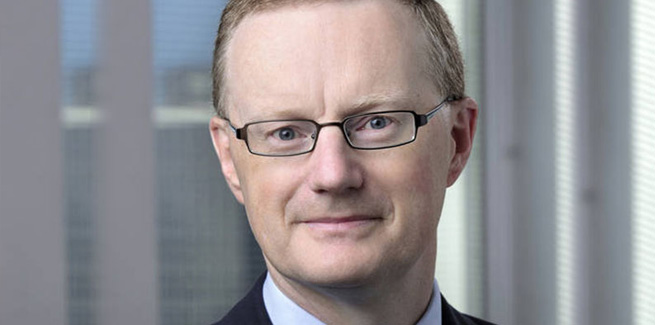Expected rate cuts from the Federal Reserve in the United States and from the European Central Bank (ECB) have been flagged as a potential catalyst for a revision to the Reserve Bank of Australia’s (RBA) monetary policy strategy.
Earlier this month, the RBA cut the official cash rate for the first time in almost three years and has since acknowledged that further reductions are “more likely than not”.
According to Reserve Bank governor Philip Lowe, “at its core”, the central bank’s easing strategy is designed to “support employment growth and provide greater confidence that inflation will be consistent with the medium-term target”.
However, both the Federal Reserve and the ECB have signalled that they will also look to lower rates in the coming months, with the former expected to drop rates twice in 2019.
AMP Capital chief economist Shane Oliver has said that the reductions would undermine the RBA’s hopes for a lower Australian dollar to improve the domestic labour market’s competitiveness in the global economy.
Mr Oliver said that the RBA may have to “ease further than they otherwise would have” to bring down the Australian dollar.
In a panel discussion hosted by the ANU Crawford Australia Leadership Forum, governor Lowe acknowledged the challenges but noted the central bank’s reluctance to exhaust its monetary policy lever.
“If everyone’s easing, the effect that we get from exchange rate depreciation [isn’t there], so we don’t get the same stimulus that you would normally expect from monetary easing,” he said.
“It may be possible if you ease more than others, but that’s quite a dangerous path to go down.”
He added: “There are limits on what further monetary policy can achieve.”
Mr Lowe renewed his call for alternative policy measures to stimulate the domestic economy.
“In my mind, that means we need to focus on fiscal policy and structural reforms,” he said.
The governor encouraged policymakers to consider increasing infrastructure spending, noting that it would “benefit the demand side of the economy” and “add to the productive capacity of the nation”.
“Governments here and right around the world should have their top drawers full of really good ideas that are shovel-ready in case global growth slows to increase spending on infrastructure, and fiscal expansion in the current environment is going to be better than further monetary easing,” he said.
Lowe dismisses recession fears
Mr Lowe has also downplayed concerns that the global economy is headed towards a GFC-like recession.
Mr Lowe said he is confident that structural changes implemented following the global financial crisis would mitigate risks.
“Are we likely to face another global financial crisis? In my view that’s quite unlikely,” he said.
“I say that because the financial system is much stronger than it was a decade ago. Capital levels are much higher, liquidity ratios are much higher, [and] bank balance sheets are simpler.
He added: “The financial system looks a lot stronger than it was a decade ago. I don’t think we’re going to see the financial amplification and the financial shock that we saw a decade ago.”
However, Mr Lowe conceded that weakness in the European economy could pose a threat to stability.
“The weakest spot is the European banks. The market value of their assets is significantly less than the book value, which means investors really don’t believe the value of those assets,” he added.
“If we have a downturn in Europe, that uncertainty about the bank assets might become quite an issue, but at the moment, that’s OK.”
[Related: RBA faces dilemma and global markets turn]
 ;
;
